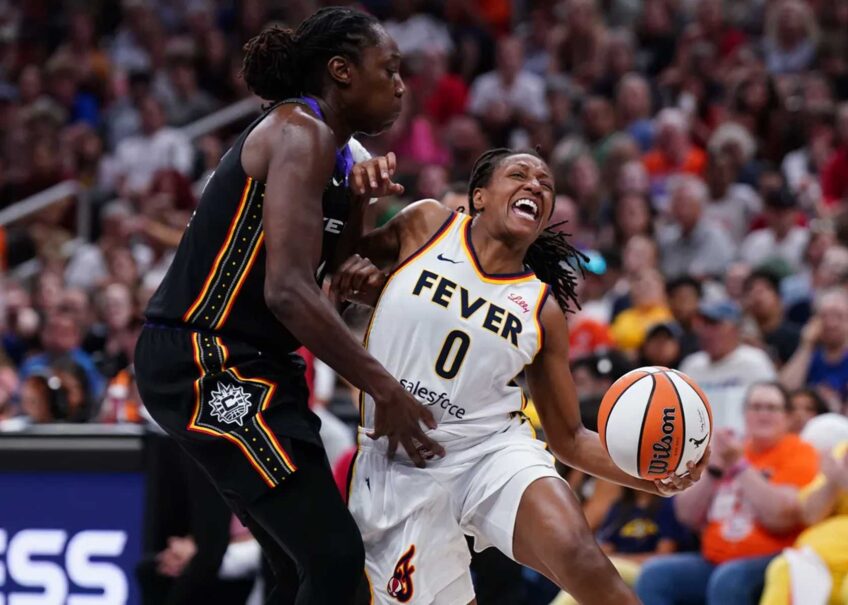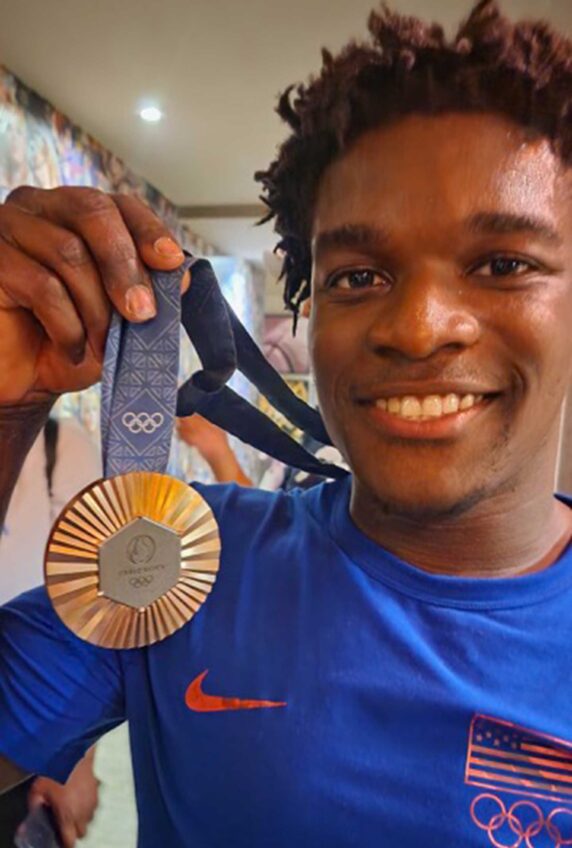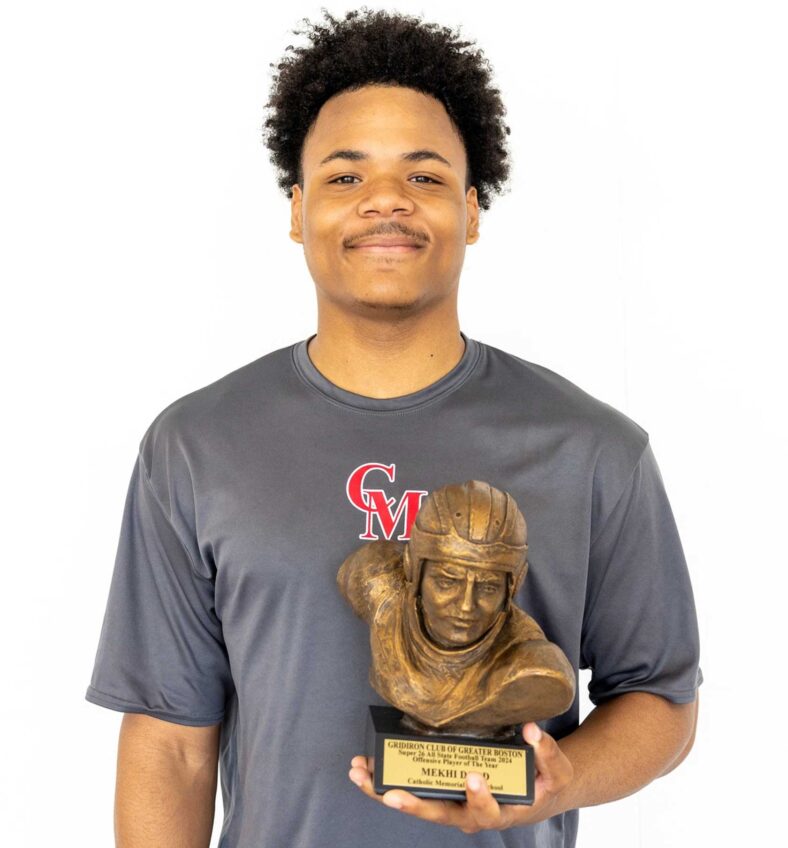
Madison Keys and Christopher Eubanks made major headlines at the Wimbledon Tennis Championships this year.
Keys, ranked 25th at Wimbledon, made it to the quarterfinal round, before losing to the second-seeded Aryna Sabalenka of Belarus (6-4, 6-2).

Madison Keys, ranked 25th at Wimbledon, made it to the quarterfinal round, before losing to the second- seeded Aryna Sabalenka of Belarus. PHOTO: WIKIMEDIA COMMONS
Eubanks, who was unranked, also made it to the quarterfinal round before losing a heartbreaking decision to 3rd-ranked Daniil Medvedev in five tough sets (Medvedev winning 6-4, 1-6, 4-6, 7-6 (4), 6-1).
Keys, 28, currently ranked No. 16 on the Women’s Tennis Association (WTA) circuit with seven singles titles and career earnings of more than $16 million, has been considered a major star since turning pro on her 14th birthday.
Inspired by the groundbreaking heroics of Venus and Serena Williams, Keys has made a name for herself, even posting a win over the great Serena Williams (ranked No. 2 in the world at the time) in a World Team Tennis exhibition set.
One of the highest moments of her career to date came when she squared off with Sloane Stephens in the 2017 U.S. Open final (won by Stephens). Their match snapped a streak of no American women aside from the Williams sisters appearing in a Grand Slam singles final since 2005.
Keys’ father, Rick, and mother, Christine, are both practicing attorneys, providing her with the financial support to pursue her tennis dream.
“Madison has been watching Wimbledon tennis since she was 4,’’ said Rick Keys. “She was inspired to start playing tennis after seeing the dresses Venus Williams was wearing at Wimbledon on TV.”
Keys asked her parents for a white tennis dress like the one Venus Williams wore. The parents made a bargain that if Madison started playing tennis, she would get the dress. She got the dress, and the rest is pure history.
Eubanks, 27, with one career singles title on his resume, has gained his highest Association of Tennis Professionals (ATP) ranking of No. 31, as of July 3. He was on a hot streak by winning an outdoor grass tournament in Majorca, Spain, that is a tune-up for Wimbledon.
With fellow African American Frances Tiafoe winning the week before on Stuttgart, Germany’s grass courts, it marked the first time since 1984 that Americans had won two ATP grass tournaments leading up to the All England Club Championships.
Eubanks’ father, Mark, was his coach until age 13, and taught his older brother to play the game. He also credits early training work with Donald Young, a top 100 player in the ATP rankings, for giving him the belief that he could play pro tennis.
Ken Thorne, his college coach at Georgia Tech, polished off some of his game’s rough edges, helping Eubanks become a two-time All-American and twice being named ACC Player of the Year. “Chris was a raw 6-foot-7-inch talent when he came to Georgia Tech but quickly advanced to a starting role on the team and an All-American,’’ Thorne said. “He was doing television commentary when he decided to push himself to become a better player. Winning the singles title at Majorca was a watershed moment for Chris, but I’m more impressed that he carried that momentum to Wimbledon and played as well as he did.”
When I asked why it has taken so long for Eubanks to reach this level of play, Thorne responded: “I’m not sure, but I’m glad for his current success and I hope he keeps it up.”
With the absence of 41-year-old superstar Serena Williams (preparing to give birth to her second child) and a desperate need for more Black tennis stars on the pro circuit, one can easily see why Tiafoe, Keys and Eubanks (with the last two coming off their outstanding performances at this year’s Wimbledon tennis tournament) carry the hopes of Black people who dig the game of tennis.
Other American Black tennis players had a good run at Wimbledon this year, including Clervie Ngounoue, who won her first junior Grand Slam singles over Czech tennis player Nikola Bartunkova.







